JESA
The USENIX Journal of Education in System Administration
Volume 1, Number 1 September 2015
In This Issue
Kyrre Begnum, JESA Co-Editor-In-Chief
Thomas A. Limoncelli, StackOverflow.com
Jeroen van der Ham, National Cyber Security Centre-NL, University of Amsterdam
Kyrre Begnum, Oslo and Akershus University; Charles Border, Rochester Institute of Technology; Niels Sijm, University of Amsterdam
Guy Hembroff, Lucas Hanson, Tim VanWagner, Scott Wambold, and Xinli Wang, Michigan Technological University
2015 by The USENIX Association
All Rights Reserved
This volume is published as a collective work. Rights to individual papers remain with the author or the author's employer. Permission is granted for the noncommercial reproduction of the complete work for educational or research purposes. USENIX acknowledges all trademarks herein.
ISBN 978-1-931971-263 ISSN 2379-4798
JESA Editorial Board
Chief Editors
Kyrre Begnum, Oslo and Akershus University College of Applied Sciences
Charles Border, Rochester Institute of Technology
Editorial Board
Melissa Danforth, California State University, Bakersfield
leen Frisch, Exponential Consulting
Guy Hembroff, Michigan Technological University
Erik Hjelms, University College of Gj vik
vik
Scott Orr, Indiana UniversityPurdue University Indianapolis
Andrew Seely, University of Maryland University College (UMUC)
Niels Sijm, University of Amsterdam
Stephen Smoogen, RedHat
Steve VanDevender, University of Oregon
Charles Wiseman, Wentworth Institute of Technology
Erez Zadok, Stony Brook University

FOREWORD
JESA: A Milestone on an Interesting Journey
I remember seeing an actual milestone for the first time as a child, when walking along an old roman road in Germany. I didn't pay much attention to it. In fact, the whole village was called Milestone, or Merkstein, so the fact that this was the stone that marked a certain distance to some city (not Rome) didn't convey the same meaning as it would to a traveler in olden times.
Now I look upon a new milestone which means a lot more, and that has just been placed. USENIX has for over a decade supported those who teach system administration. During the annual USENIX LISA conferences, we were granted a small workshop that combined teachers and practitioners: the system administration education workshop. Personally, my first workshop was in December of 2003. This was before the digital explosion that was to come with the likes of Google and Facebook. Virtualization was just about to burst on the scene, and cloud computing would follow half a decade later. In IT timekeeping, this was an age ago. Over the years, the group continued to show up and we heard of educational programs appearing. As IT exploded, we tried to keep up with updating our courses and programs, incorporating new languages, technologies and practices. We watched in fascination as the LISA community discussed the newfound place, role, and identity of their profession in the light of the IT revolution.
In 2012, I was approached to organize the first USENIX Summit for Educators in System Administration (SESA). This was a major step for our group. USENIX recognized the importance for the profession to have good and coordinated educational programs around the world and was prepared to back our group further. The first summit was in 2013, and next in 2014. These summits had a great effect on expanding the community and the recognition we got from the industry. Now, we witness our next and latest milestone: our first own-written body of knowledge.
It is our hope that through annual SESA events and JESA releases, the community, education, and identity of the system administration profession will continue to grow. SESA and JESA should not be the educators' voice, where educators write about education to other educators. It should continue to be the forum that is owned by the community for the exchange of ideas and experience. Our community is strong because it contains members of the industry as well as academia. We will continue to seek contributions about courses, programs, and pedagogical work as well as new trends and practices that happen locally and how the identity of the profession changes.
This first issue contains papers from educators and also a column from a member of the industry by the venerable textbook author, speaker, and former LISA Chair Tom Limoncelli. We consider this industry relationship to be extremely important as they are the profession we try so hard to prepare our students for. They also represent how it all started, with us under the wings of the premier conference of system administration.
We hope you will enjoy the first issue of JESA.
Kyrre Begnum, JESA Co-Editor-in-Chief
INDUSTRY'S VOICE
An Open Letter to JESA
By Thomas A. Limoncelli, StackOverflow.com
I challenge JESA to create the next generation of system administrators (SAs) who can meet a wide range of ever-changing duties and responsibilities. As I will show, this is necessary for society as a whole to continue to grow and survive.
The Forest
Two people attempt to walk across a large forest.
The first person has no maps, no training, no tools or equipment. However, this person is very smart. Very, very smart. It will be difficult to make it to their destination. They will need to quickly figure out how to find food and water or they will starve. They will need to navigate based on educated guesses and not be deterred by missteps and dead-ends. Learning how to defend oneself against bears by trial and error seems like a losing proposition, but I suppose it can be done.
The second person has a recent map, training in outdoor survival skills, a proper compass, sleeping equipment, and a backpack. They know what plants are edible and which aren't. They know how to find safe drinking water. Recent plant growth has made their map slightly outdated but it is sufficient for their needs. Their training has prepared them to avoid bears and, more importantly, how not to attract them in the first place.
The first person's journey was high-stress, high-risk, and difficult work. When they were done they said, I'm glad I made it!
The second person completed their journey and said, I'm glad my teachers prepared me so well!
Society Depends on System Administration
We often lose sight of how important teaching system administration is. It isn't just important, it is scary-important.
When old systems are computerized this means they now depend on sysadmins.
We are living in an era where society has become dependent on computers to sustain itself. It used to be that if the computer was down, we would temporarily switch back to paper until the computer came back up.
We can't do that anymore. It isn't that IT is a part of how food gets from the farm to our plate, but rather that we, as a society, no longer know how to provide food without IT. The supply chain from fertilizer to supermarket is planned, executed and monitored at such a scale that it cannot be done manually. We literally do not know how to feed a city without IT. Medicine isn't just billed and administered with the assistance of IT, we literally can't provide medical services without IT anymore. Our entertainment, education, government, and economics are unsustainable without IT.

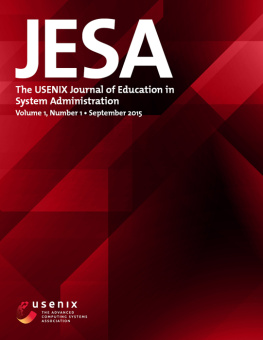

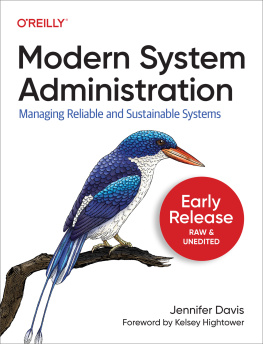
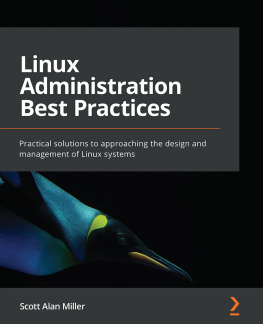
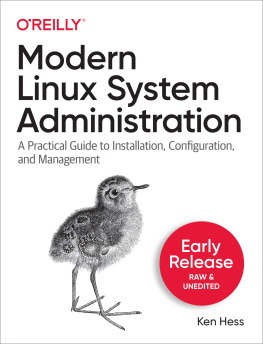
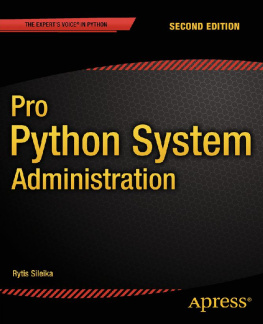
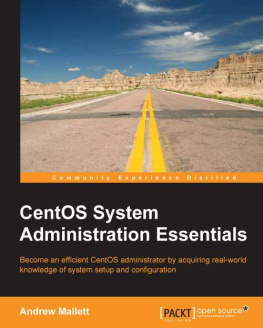

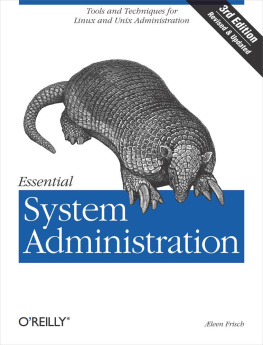
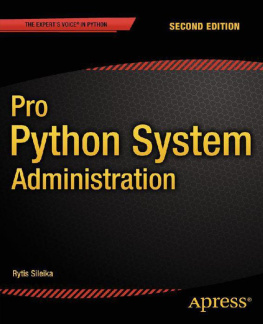
 vik
vik